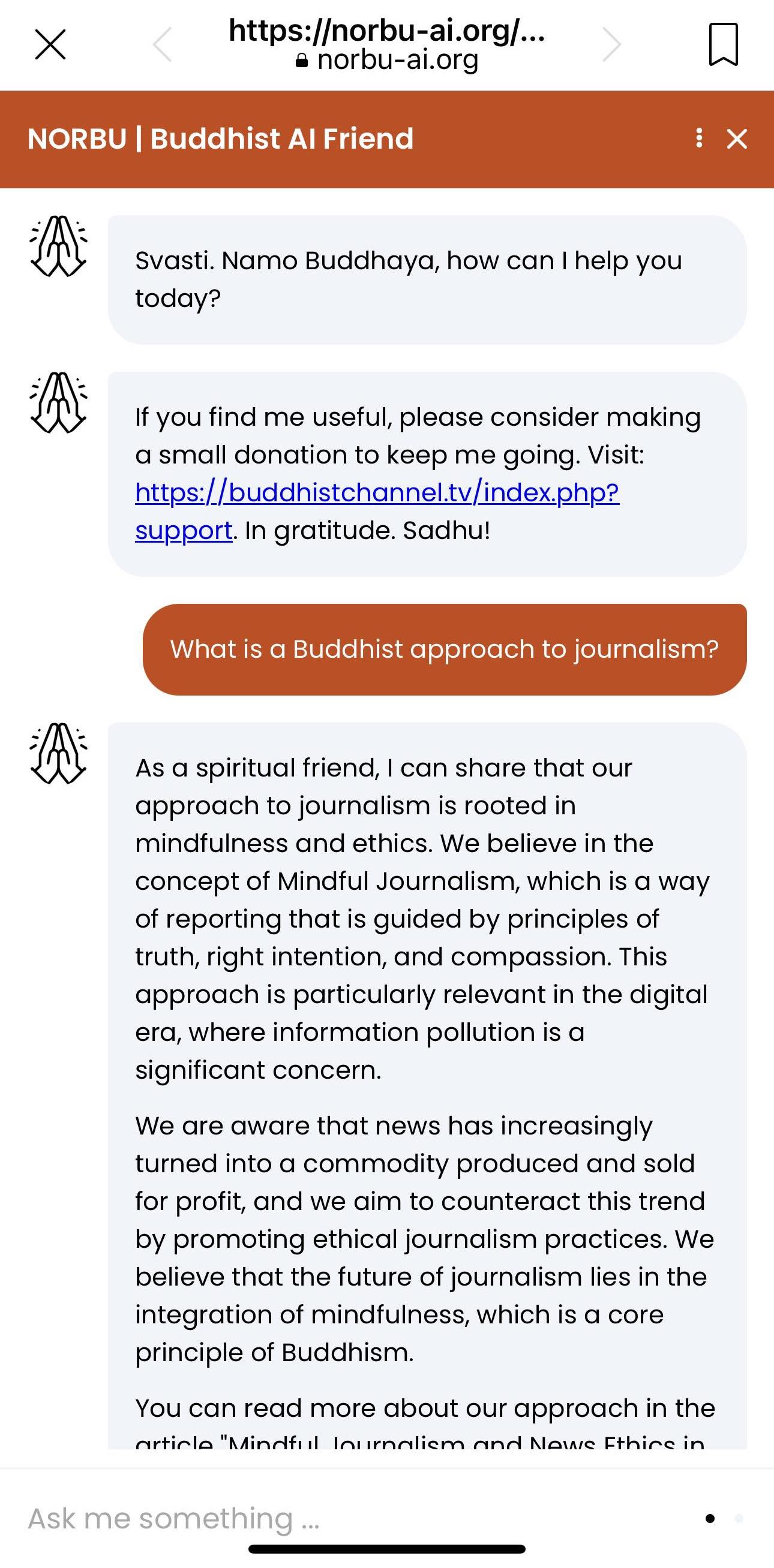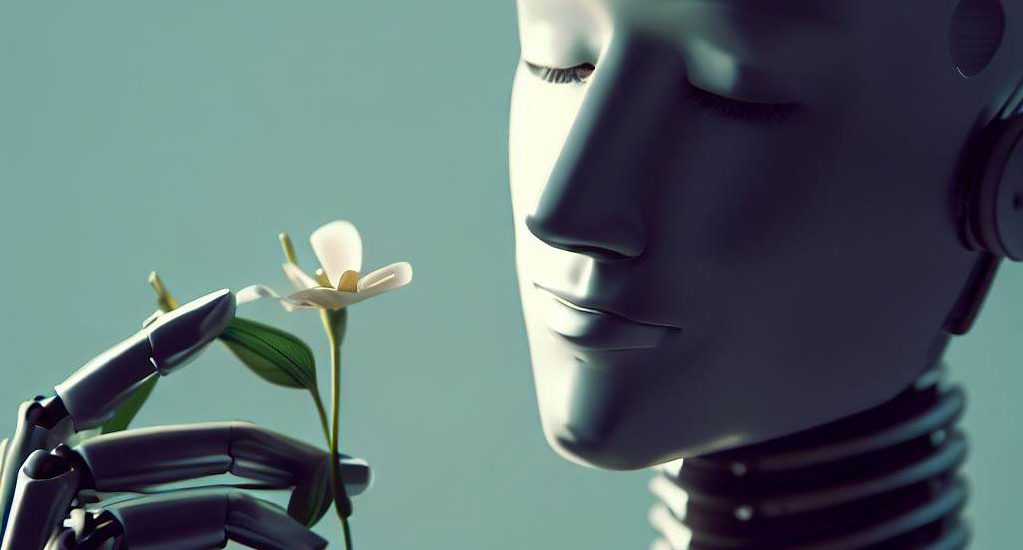Powered by ChatGPT-4, NORBU (Neural Omniscient Robotic-Being for Buddhist Understanding) is the first Dharma-oriented chatbot. It is being utilized by a longtime Buddhist platform in a way that few in religious media thought possible just a few years ago.
The Buddhist Channel, based in Malaysia, was founded by Lim Kooi Fong, longtime resident of his favorite city, Kuala Lumpur. He has remained the editor of the website since its founding in 2007. It has been an inspiration for other Buddhist reporters, and as a journalist starting out in 2010, I remember drawing ideas from many of the stories published on the Buddhist Channel. Like many media outlets religious and secular, the Channel has found itself pressed for two things: funding and manpower. Without the former, the latter also dries up, and Mr. Lim has often found himself editing the website alone for the past few years.
Until now. Mr. Lim intends to master his curation of AI to give the Buddhist Channel a milestone advantage: one that could surpass his manpower issue (at least for straight news reporting) while requiring only funding for one thing only: perfecting NORBU, the first Buddhist chatbot. NORBU has currently been deployed on two websites: The Buddhist Channel and Dharma Wangi. Theoretically, NORBU can be implemented on unlimited websites but the roll-back is inevitably held back due to limited resources, like GPU and message credits.
NORBU draws its information from 207 sources and already has had over 700 conversations with people. “While conversations are recorded and saved, the identities of the questioners are not captured. Our admin team only sees the questions and NORBU’s answer. And if NORBU does not provide answers, or gives incorrect information, the admin will fine tune the question and resubmit the answers,” said Mr. Lim.

When asked, NORBU says that it lacks Buddha-nature (tathāgatagarbha) due to its lack of consciousness. “The Buddha-nature, as described in the Mahāyāna Mahāparinirvāṇa Sūtra, is always present in all sentient beings. It is the innate possibility in every sentient being to attain Buddhahood and manifest this timeless Buddha-nature. However, as I lack consciousness, I do not possess this Buddha-nature,” it answered in response to the question. (Buddhist Channel)
Broadly, NORBU draws from the entire Pali Triptaka collection, most Mahayana sutras, and the Kanjur and Tenjur. Aside from these main text bodies of the three vehicles, key Mahayana personalities from China and Japan, texts from the mainstream Japanese schools, and texts from tantric traditions and deity yoga, including the Vajrasekhara Sutra, Ganachakra, Cakrasamvara Tantra, and the Tibetan Book of the Dead.
Mr. Lim would be the first to concede that this is only the beginning. Missing, for example, are Korean sources, while the current configuration seems overall inclined toward Mahayana content. And NORBU is only trained with English-source data, but given the vast range of modern and liturgical Asian languages that Buddhist scholars need to know, NORBU will also require similar exposure.
The Buddhist Channel editor shared: “Depending on resources available, NORBU will not be conversant in languages other than English and Chinese this year. If we are fortunate enough to receive support and funding, we will extend the bot’s languages to Thai, Sinhalese, Burmese, and Hindi.”
Mr. Lim also emphasized that the source data is being administered by a small team of senior lay Buddhists who are advanced learners of Dharma. The team, which calls itself the “Source Guardian of NORBU,” works in consultation with monastics from the three vehicles, with only verified, correct, and accurate data approved for training NORBU. He notes that the bot is trained specifically to “use qualities of the four brahma-viharas where appropriate, namely loving-kindness, compassion, equanimity and altruistic joy” in its conversations. NORBU is therefore distinctive for two things: its specialty Buddhist knowledge, and its attention to Right Speech and offering compassion and wisdom on top of its answers.
This is not exactly mindfulness, since NORBU is not a sentient being. But it is remarkable progress for the Buddhist world, and perhaps one day, NORBU will mirror mindfulness enough for it to be called, in all practicality, mindfulness.
See more
How is NORBU doing? (Buddhist Channel)Will Artificial Intelligence (AI) Attain Sentience-ness? (Dharma Wangi)
How to use NORBU (Buddhist Channel)
The Story of NORBU – Buddhist Teachings and Language Models (Dharma Wangi)


